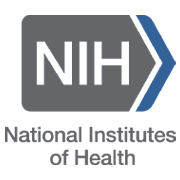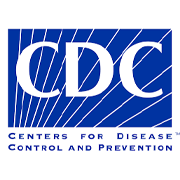Serving our families and communities, one patient at a time.
The Vaccine Strike Force team works closely with the Florida Department of Health, community organizations, places of worship, cities, and counties to provide comprehensive vaccine and antivirals (PAXLOVID™) treatment services, community outreach, and support services to the residents of South Florida and beyond.
As part of our education and resources services, we encourage all recipients of Paxlovid to read over the information provided on this page, which includes critical drug interaction information, answers to your most frequently asked questions, and other medical information and resources.

Questions? Call Us!
(954) 50-COVID
Monday – Friday, 9am – 10pm EST.
If you have questions or concerns about access to or usage of Paxlovid for the treatment of COVID-19 symptoms or confirmed infections, give us a call. Our medical team is happy to help.
Paxlovid Frequently Asked Questions (and Answers!)
The presentation of COVID-19 symptoms may vary; however, the most common manifestations of COVID-19 infection include fever or chills, cough, dyspnea, fatigue, myalgia, headache, anosmia or ageusia, sore throat, rhinorrhea or nasal congestion, nausea or vomiting, and diarrhea. Although other infrequent symptoms have been documented, severe cases can culminate in extreme respiratory distress, necessitating hospitalization, and in many cases, death.
PAXLOVID™ is an antiviral medication designed to kill viruses. It was developed by Pfizer right here in the USA and available for all Americans under Emergency Use Authorization (EUA). It is administered via three tablets twice a day for five days. Paxlovid can kill the COVID virus, including all its variants, including Omicron and others.
Right now, Paxlovid has Emergency Use Authorization (EUA), and it will keep getting approval from the FDA even after President Biden declares that the COVID-19 emergency has shifted from a pandemic to an epidemic for parts of our country and the world in May, 2023.
Extremely effective.
According to Pfizer’s own studies, Paxlovid reduced the risk of COVID-19–related hospitalization or death by 86% (link). Third party studies (link) have shown Paxlovid is 89-90% effective if taken within 2-3 days of symptoms in preventing severe illness including hospitalization, ventilator use, and/or death.
In either case, Paxlovid has proven to be extremely effective and safe.
The most common side effect of Paxlovid is a metallic taste in your mouth that usually last for approximately 15-30 minutes. This usually decreases with drinking plenty of water! Less common are, diarrhea, elevated blood pressure or muscle aches. Other side effects have been reported but are not common.
Yes, there are many drug interactions.
We encourage you to refer to the drug interactions links and downloadable documents in the “Paxlovid Resources” section of this page. We have organized mediations as follows:
- Medications that are safe to take with Paxlovid are presented in the green sections.
- Medications that are safe to take with some modifications of your regular medications are listed in the yellow section.
- If you are currently taking any medications that appear in the red section, we recommended that you avoid taking Paxlovid due to the risk that stopping your current medications could lead to serious medical issues.
Please see our downloadable guide (PDF) or visit the provided CDC drug interaction link. In short, if you are on any of the following, you cannot take Paxlovid:
- Amiodarone (Cordarone, Pacerone) these drugs are mainly for the treatment of irregular heartbeats, such as atrial fibrillation or ventricular arrhythmia which could lead to death if you stop taking it.
- Some anticonvulsant (seizures) medications such as Phenobarbital, Phenytoin and Primidone.
- Pain medications, such as Meperidine (Pethidine) or medications for Pulmonary Hypertension (Sildenafil, Tadalafil and Vardenafil).
No.
Since the introduction of Paxlovid, the criteria for its dispensation have undergone some modifications. If you possess any of the following risk factors for contracting severe COVID-19, including advanced age (above 50 years), African American ethnicity, obesity, diabetes, chronic liver and kidney diseases, hypertension, heart or lung ailments, lupus, sarcoidosis, sickle cell anemia, asthma, HIV, cancer, history of strokes, Down Syndrome, mood disorders, depression, schizophrenia, pregnancy, smoking, or long-term use of corticosteroids, you will receive a Paxlovid packet. In the event that you display COVID-19 related symptoms and have been cleared by one of our healthcare professionals, you may take the medication contained in the packet.
If you have any questions or concerns, please contact us at 954-50-COVID. For further information, please refer to the CDC’s list of underlying conditions.
There is no cost for receiving Paxlovid.
Within the next three to four months, it is anticipated that the cost will be more than $600.00/treatment pack, so we’re pleased to be able to receive access to a healthy supply of Paxlovid to ensure our communities have full access to this life-saving drug and are not left behind.
Special thank you to the leadership team at the Florida Department of Health for helping us make this possible.
Paxlovid Resources
Drug Interactions with Paxlovid
Read our list of drug interactions with Paxlovid, assembled by Dr. Reynolds.
Note: This is not a comprehensive list of all the medications that are not expected to have clinically relevant interactions with ritonavir-boosted nirmatrelvir, but covers most common medications.
Official National Institutes of Health (NIH) guidance for drug interactions with Paxlovid, updated September 26, 2022. Visit the link below to learn more.
Note: This is not a comprehensive list of all the medications that are not expected to have clinically relevant interactions with ritonavir-boosted nirmatrelvir, but covers most common medications.
Underlying Medical Conditions Associated with Higher Risk for Severe COVID-19
This webpage provides an evidence-based resource for healthcare professionals caring for patients with underlying medical conditions who are at higher risk of experiencing severe outcomes of COVID-19. Severe outcomes of COVID-19 are defined as hospitalization, admission to the intensive care unit (ICU), intubation or mechanical ventilation, or death. Visit the link below to learn more.
Interim Clinical Considerations for COVID-19 Treatment In Outpatients
This webpage discusses the strong scientific evidence that antiviral treatment of outpatients at risk for severe COVID-19 reduces their risk of hospitalization and death. The antiviral drugs nirmatrelvir with ritonavir (Paxlovid) and remdesivir (Veklury) are the preferred treatments for eligible adult and pediatric patients who are at high risk for progression to severe COVID-19. Visit the link below to learn more.
Videos
Photo Gallery



